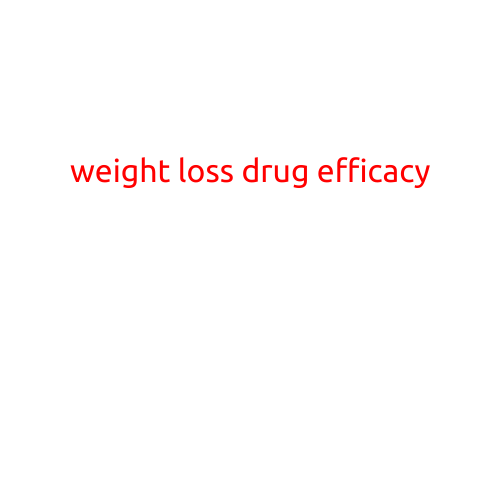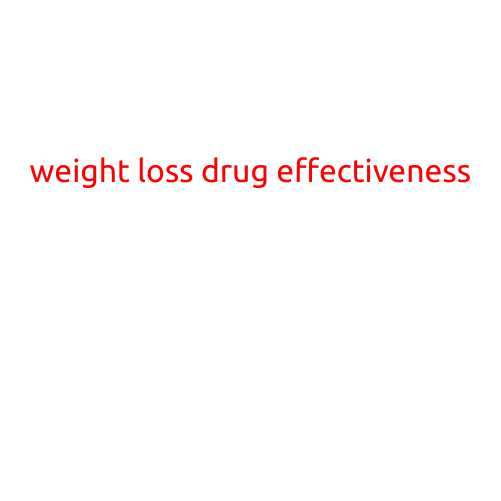
Weight Loss Drug Efficacy: Separating Fact from Fiction
Obesity is a growing global health concern, with over 39% of adults in the United States classified as obese. As a result, the demand for weight loss treatments has skyrocketed, with many individuals seeking quick fixes and miracle cures. However, amidst the noise, it’s essential to separate fact from fiction when it comes to weight loss drug efficacy.
Understanding Weight Loss Drug Mechanisms
Weight loss drugs typically work by targeting various physiological pathways, such as:
- Appetite suppression: Reducing hunger and increasing feelings of fullness to curb excessive eating.
- Metabolism enhancement: Increasing the body’s metabolic rate to enhance fat burning and energy expenditure.
- Inhibition of fat absorption: Blocking the absorption of dietary fat in the gut, reducing calorie intake.
Common Weight Loss Drugs and Their Efficacy
- Phentermine: An appetite suppressant commonly used for short-term weight loss. Studies show that it can lead to significant weight loss (11-30% of initial body weight) after 12 weeks.
- Orlistat: An inhibitor of fat absorption, which reduces calorie uptake by 30%. While it may not lead to dramatic weight loss, it can promote sustained weight loss (5-10% of initial body weight) over long periods.
- Liraglutide: An injectable medication that works by mimicking a natural hormone, increasing feelings of fullness and reducing appetite. Studies show that it can lead to significant weight loss (8-15% of initial body weight) after 12 weeks.
- Bupropion: An antidepressant that also suppresses appetite. While it has been shown to induce modest weight loss (4-7% of initial body weight) in some studies, its efficacy is limited by its side effect profile.
- Semaglutide: A type of GLP-1 receptor agonist, similar to liraglutide. Studies have demonstrated that it can lead to significant weight loss (15-20% of initial body weight) after 12 weeks.
Factors Affecting Weight Loss Drug Efficacy
- Patient selection: Weight loss drugs are most effective for individuals with a BMI ≥ 30 or ≥ 27 with comorbidities.
- Dose and duration: Optimal dosing and duration of treatment can impact weight loss outcomes.
- Combination therapy: Combining weight loss drugs with lifestyle modifications (diet, exercise) can enhance efficacy.
- Individual variations: Genetic differences and individual responses to medication can influence efficacy.
Conclusion
When it comes to weight loss drug efficacy, it’s essential to recognize that no single medication is a miracle cure. Efficacy varies depending on the individual, medication, and treatment approach. While some medications may be more effective than others, a comprehensive approach that includes lifestyle modifications, patient selection, and proper dosing is crucial for achieving sustainable weight loss.
Caveats and Considerations
- Side effects: Weight loss drugs can have significant side effects, including gastrointestinal issues, anxiety, and changes in blood pressure.
- Long-term use: The long-term safety and efficacy of some weight loss drugs are uncertain, and prolonged use may lead to decreased efficacy or resistance.
- Lifestyle habits: Weight loss drugs are most effective when combined with healthy lifestyle habits, including a balanced diet and regular exercise.
By understanding weight loss drug efficacy and working with a healthcare professional to develop a personalized treatment plan, individuals can achieve sustainable weight loss and improve their overall health.





